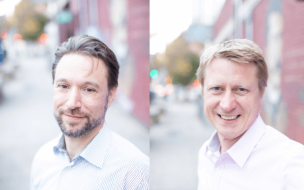She consults some of the world’s biggest technology firms and start-ups in the Bay Area and has drawn on the strategy skills gleaned from an MBA program at St. Gallen, the Swiss business school.
After graduating with an MBA in 2010, she eventually wound up at Rocket, the technology incubator which is set to list on the Frankfurt stock exchange in October with a midpoint market capitalisation of €6.2 billion, but which has also drawn controversy for re-producing successful business models to Europe and emerging markets.
Although based in Cape Town, South Africa, her role at the company included developing a global marketing strategy including collating marketing operations across several different countries and companies.
She left in October 2012 and started work as an independent consultant in the Valley. Her business is competing for a $150,000 grant to open a co-working and business training center in the Bay Area. Her clients and partners include IDEO, the international design firm, and Melrose Sound Studios.
What made you decide to begin an MBA program?
I think when it comes to business; you can really learn what you need to succeed through experience.
Less than two years after completing undergrad I was managing a team of more than 60 people and realized I could use some formal education in that area.
[But] I was much younger than most of the people I was working with. I felt that having a degree would be a faster way [to learn], [rather] than just continuing to work to improve some of my skills and earn the right to be doing the same work as my more experienced colleagues.
What was your experience like at the University of St. Gallen?
I really enjoyed my time at St. Gallen as well as Nanyang [Business School] – I did a double degree program. St. Gallen gave me a more traditional, small-school education with a strong financial basis.
NTU gave me a new-world, larger-school education with a tech focus. I chose those two schools because I wanted exactly that breadth of experience. It was perfect for me.
What value do you place in your MBA degree now?
The degree itself is less important than the jobs I had afterwards – but I couldn’t have gotten the jobs without the degree. So I was right when I bet that getting an MBA would be worth it, and not because of the piece of paper but because of the experiences it enabled.
You worked in business development at Rocket Internet – what projects did you work on?
I had three main projects in my time with Rocket. The first was on the founding team of a shoe e-tailer where I was responsible for putting together the buying department – the not so trivial task of: do we get $5 million worth of shoes in three months? – and ensuring the different areas of the company knew what each other were doing.
The second was as co-founder of a furniture e-tailer, where I managed the marketing department and co-managed the HR and finance [departments].
The third was as an internal consultant, helping to figure out a global marketing strategy including collating marketing operations across 11 companies [and] countries, codifying best practices and disseminating the information.
Why did you decide to become self-employed?
In all my various jobs I learned a lot about how to be successful in all these little parts of business. No one company I worked with had the entire thing figured out – how to earn lots of money, have a positive impact on the world and be a great place to work.
I have some pretty good ideas [about] how to take the best parts from each of my employers’ strategies to succeed in all three aspects, and I figured it would be easier to do that on my own [rather] than to try to change an existing company.
How did your MBA prepare you for the dynamic environment of Rocket Internet, where projects changed continuously?
I sometimes say that both Rocket and the strategy consulting I did after my MBA were like continuations of business school. Consulting gave me real-world experience in preparing and presenting a strategic course of action. Rocket gave me real-world experience in executing a strategic course of action.
The MBA was like an intensive prep for both of those: I learned the technical skills and the soft skills – never underestimate them – I needed to have the confidence to do well [in] both of those jobs.
What were the challenges you faced when you moved from working on e-commerce projects with Rocket Internet to consulting companies in Silicon Valley?
There have been all sorts of fascinating challenges – the first being that with Rocket you learn how to execute an existing vision. I had underestimated the challenge of coming up with that vision and finding the funding for it.
Believe it or not, just being really clear about what exactly I want to be doing has been hard to figure out – there are so many start-ups here [that] I could work with a thousand different companies in a year if I decided not to sleep.
Figuring out which people, missions and industries I truly enjoy has been a fun process.
You have worked in four different countries – did that help prepare you to start working as an independent consultant?
Absolutely. Not necessarily in specifics but in being flexible with cultures while being true to myself. Each country I spent time in had a different way of working and living; it was up to me to find my way of existing in that culture.
With consulting, you have to do the same with each company – you can’t just brute force your way to getting them to see why they should do this or that. You have to take a look at what they do, why and how it is done that way, [and] then introduce your solutions.
What is it like to work in the biggest start-up destination in the world?
It is an incredible opportunity to stay on top of how our world will change in the coming years. On the other hand, it is something of its own microcosm of entrepreneurship and I have to remember that the rest of the planet doesn’t all think – or more importantly spend money – this way.
RECAPTHA :
9e
70
95
27







